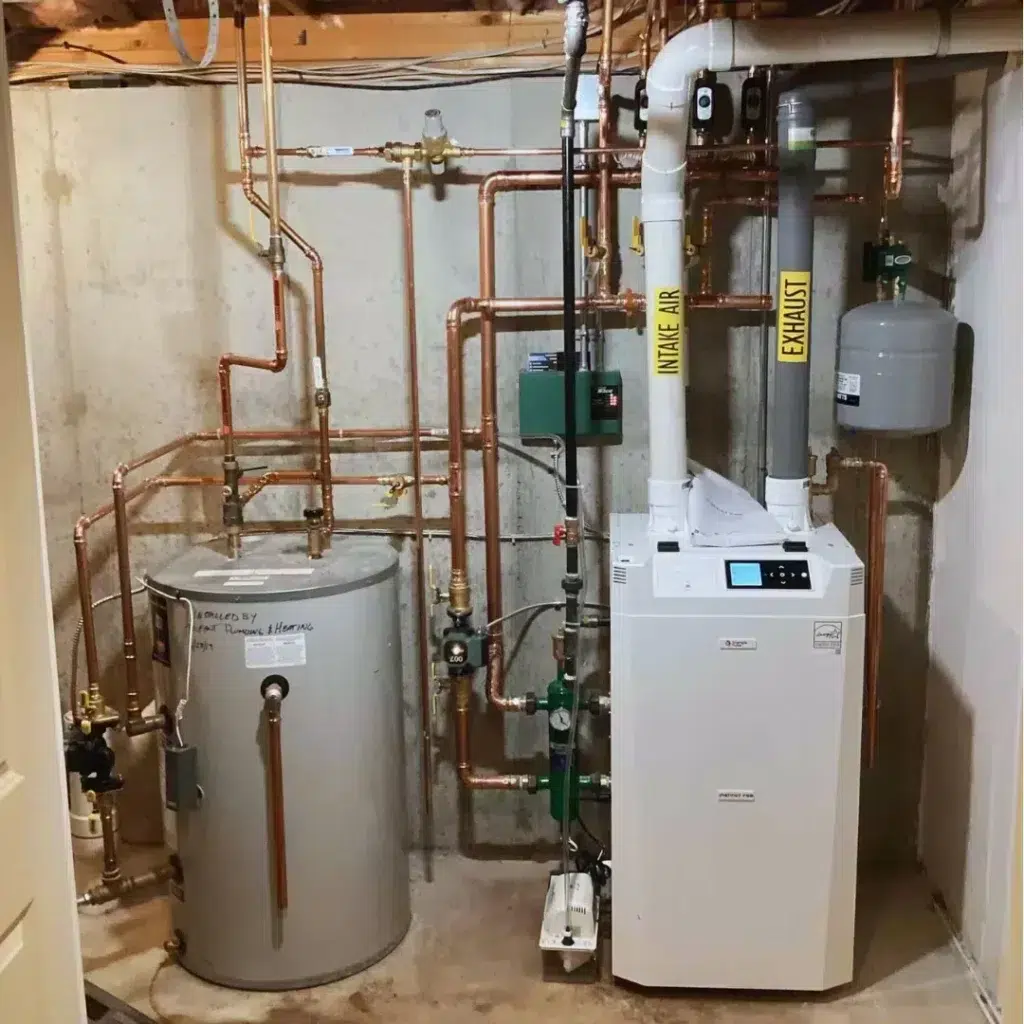
In the quest for an efficient, reliable water heating solution, gas water heaters have emerged as a popular choice among homeowners.
Known for their quick heating ability and cost-effectiveness, these systems offer a blend of performance and convenience that is hard to match. With advancements in technology, options such as tankless gas water heaters, natural gas water heaters, and instantaneous gas water heaters have made the market more diverse, providing solutions that cater to varying household sizes and needs.
Understanding the key advantages of gas water heaters, including the best gas water heaters and their costs, is crucial for making an informed decision that aligns with one’s lifestyle and budgetary considerations.
This article explores the core benefits of choosing gas water heaters for residential properties, covering energy efficiency, performance, longevity and maintenance, and cost considerations.
Whether one is pondering the advantages of tankless gas water heaters over traditional gas water tank heaters or evaluating the gas water heaters cost for the top-rated models, a thorough analysis will be provided. Highlighting the best practices in installation, maintenance, and usage, this discussion will guide homeowners through the options available, ensuring they are well-equipped to select a heating system that meets their water heating demands and enhances their home’s energy efficiency and overall comfort.
Advantages of Gas Water Heaters
Energy Efficiency
Gas water heaters are renowned for their superior energy factor (EF) ratings, which indicate high overall efficiency compared to electric models. They excel at converting a more significant percentage of fuel into hot water, thus significantly reducing energy consumption and operational costs.
Environmentally Friendly
While gas water heaters use fossil fuels, they are unaffected by power outages, providing reliable service during emergencies. This reliability and efficient performance make gas water heaters a practical choice for those prioritizing continuous access to hot water and reduced energy bills. However, it’s essential to consider the environmental impact of natural gas usage, which includes greenhouse gas emissions.
Reliability and Performance
Faster Heating
Gas water heaters are distinguished by their rapid recovery rates and consistent heating, making them an excellent choice for households with high hot water demands. These heaters can heat a 50-gallon tank in about one hour, significantly faster than electric models, which may take several hours. This quick recovery rate ensures that running out of hot water is less likely, even during peak usage.
Consistent Hot Water Supply
Propane water heaters, for example, provide instant hot water on demand, ensuring a steady and reliable supply. Their efficient heating systems allow for a continuous flow of hot water, accommodating multiple simultaneous uses such as showers, dishwashing, or laundry. This reliability is crucial for maintaining comfort in residential settings.
Faster Recovery Rates
Their recovery rate measures the ability of gas water heaters to quickly replenish hot water, typically expressed in gallons per hour (GPH). For instance, while an electric water heater might have a recovery rate of about 20 gallons per hour, a gas heater can achieve 30 to 40 gallons, with high-efficiency models reaching up to 70 gallons per hour. This means that a gas water heater can restore a full hot water tank in significantly less time, enhancing convenience for larger families or during high demand.
Longevity and Maintenance
When appropriately maintained, gas water heaters can have a substantial lifespan, significantly reducing the need for premature replacements. Regular maintenance is critical to extending the life of these appliances and ensuring they operate efficiently and reliably over the years.
Maintaining a gas water heater involves several straightforward procedures that can significantly impact its efficiency and operational lifespan. Annual servicing is recommended, including flushing the tank to prevent sediment build-up, especially in areas with hard water.
Regular checks of the anode rod are essential to prevent corrosion, and the temperature-pressure relief valve should be tested to ensure it operates correctly. An annual check-up is sufficient for those with tankless water heaters to maintain optimal performance, although more frequent inspections are advisable if the water hardness level is high.
Longevity and Durability
Gas water heaters are designed to last. With routine maintenance, traditional water heaters can serve effectively for 10 to 12 years, while tankless models may last up to 20 years. The longevity of these units can be maximized through periodic inspections, which involve flushing the system to remove sediment, checking the anode rod, and ensuring all connections and valves are secure. This proactive approach prolongs the unit’s life and enhances its performance and safety.
Cost-Effectiveness
Lower Operational Costs
Gas water heaters are particularly advantageous because they heat water more rapidly than electric heaters. This quick heating capability, combined with a faster recovery time, ensures that gas heaters can efficiently meet the high demands for hot water, which is ideal for both residential and commercial use. Moreover, the cost of gas, typically lower than electricity, contributes to more affordable heating in the long run.
Long-Term Savings
Despite the higher initial costs, gas water heaters can be more economical in the long run due to lower operational costs. Natural gas is typically less expensive than electricity, which can significantly save utility bills. Additionally, tankless gas water heaters, known for their efficiency, can save a household approximately $10 per month compared to standard units. Over 20 years, this adds up to substantial savings. Moreover, with tankless models potentially lasting 20-25 years compared to 10-15 years for tank models, the need for replacement is less frequent, further enhancing long-term savings.
G&C Plumbing & Heating ensures homeowners receive expert advice and installation services, helping them make cost-effective decisions tailored to their needs and local utility costs.
Will You Be Installing or Replacing a Gas Water Heater This Year
Navigating the myriad of water heating options, gas water heaters are a superior choice for those seeking efficiency, performance, and long-term cost savings. The advantages of gas water heaters, including impressive energy efficiency, rapid water heating, and substantial longevity, position these systems as an integral solution for enhancing a home’s comfort and utility efficiency. G&C Plumbing & Heating emerges as a pivotal ally in this context, equipping homeowners with the knowledge and expert services necessary to optimize the benefits received from these systems while adhering to maintenance best practices to ensure reliable operations over the years.
Considerations of initial investment, operational costs, and environmental impact guide selecting the most suitable water heating solution. With their promise of durability and cost-effectiveness, gas water heaters represent a prudent investment for those prioritizing sustainability alongside economic advantages.
By choosing G&C Plumbing & Heating for expert advice, installation, and maintenance services, homeowners gain a high-performing water heating solution and peace of mind, knowing their system is optimized for efficiency and longevity. This strategic decision paves the way for enduring satisfaction and comfort, reflecting a harmonious blend of economic wisdom and environmental stewardship.
Call (508) 966-8919














